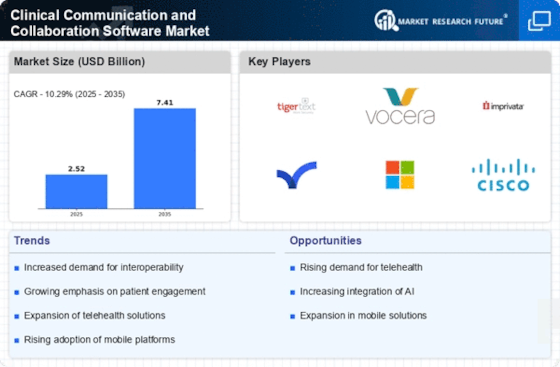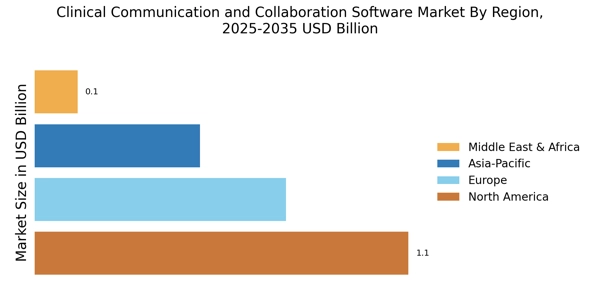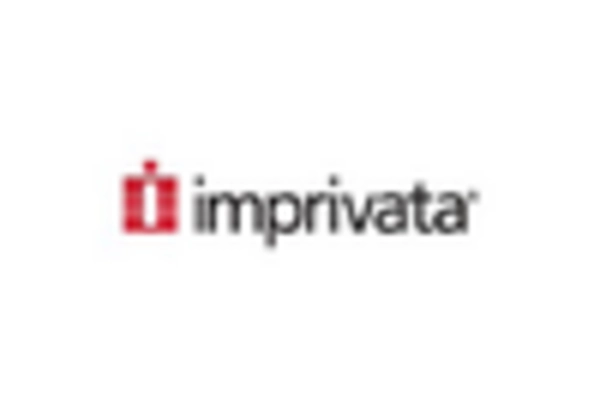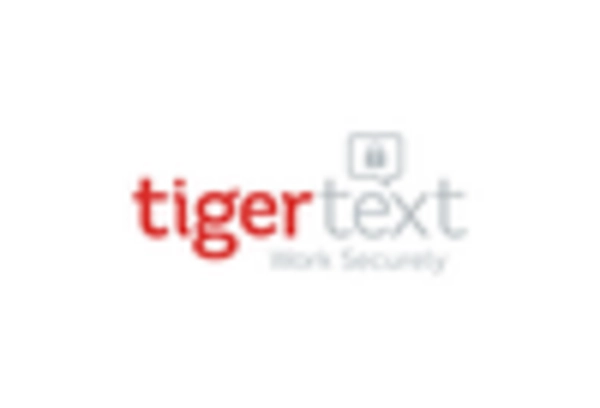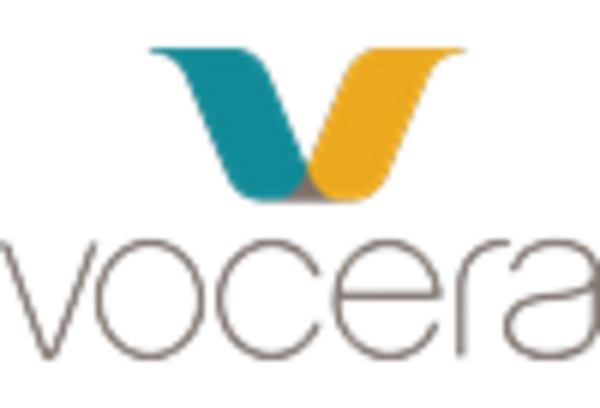Emphasis on Interoperability
Interoperability remains a critical driver in the Clinical Communication and Collaboration Software Market. As healthcare systems become increasingly complex, the ability to share information seamlessly across different platforms is essential. Recent studies suggest that over 80% of healthcare providers prioritize interoperability when selecting communication tools. This emphasis on interconnected systems not only enhances collaboration among healthcare professionals but also ensures that patient data is accessible when needed. The Clinical Communication and Collaboration Software Market is thus poised for growth as vendors develop solutions that integrate with existing electronic health record systems and other healthcare technologies, fostering a more cohesive healthcare environment.
Adoption of Telehealth Solutions
The adoption of telehealth solutions is significantly influencing the Clinical Communication and Collaboration Software Market. As healthcare providers increasingly turn to remote consultations and virtual care, the need for effective communication tools becomes critical. Data shows that telehealth usage has surged, with a substantial percentage of patients preferring virtual visits over in-person appointments. This shift necessitates the development of software that supports remote communication and collaboration among healthcare teams. Consequently, the Clinical Communication and Collaboration Software Market is expected to expand as organizations invest in technologies that facilitate telehealth services, ensuring continuity of care and improved patient access.
Increased Focus on Patient Engagement
The Clinical Communication and Collaboration Software Market is witnessing a shift towards enhancing patient engagement through innovative communication solutions. Healthcare providers are increasingly recognizing the value of involving patients in their care processes. Data indicates that engaged patients are more likely to adhere to treatment plans and experience better health outcomes. As a result, the demand for software that facilitates communication between patients and providers is on the rise. This trend is likely to drive the Clinical Communication and Collaboration Software Market as organizations seek to implement tools that empower patients, improve satisfaction, and ultimately lead to better healthcare delivery.
Regulatory Compliance and Data Security
Regulatory compliance and data security are paramount concerns within the Clinical Communication and Collaboration Software Market. With the increasing volume of sensitive patient information being exchanged, healthcare organizations must adhere to stringent regulations to protect data privacy. Recent reports indicate that nearly 90% of healthcare organizations prioritize compliance when selecting communication solutions. This focus on security not only mitigates risks associated with data breaches but also builds trust among patients. As a result, the Clinical Communication and Collaboration Software Market is likely to see growth as vendors enhance their offerings to meet compliance standards and provide robust security features.
Rising Demand for Efficient Communication
The Clinical Communication and Collaboration Software Market is experiencing a notable increase in demand for efficient communication solutions within healthcare settings. As healthcare organizations strive to enhance patient care and operational efficiency, the need for streamlined communication tools becomes paramount. According to recent data, approximately 70% of healthcare professionals report that effective communication directly impacts patient outcomes. This trend indicates a growing recognition of the importance of real-time communication and collaboration among healthcare teams. Consequently, the Clinical Communication and Collaboration Software Market is likely to expand as organizations seek to implement solutions that facilitate timely information sharing, reduce errors, and improve overall workflow.


